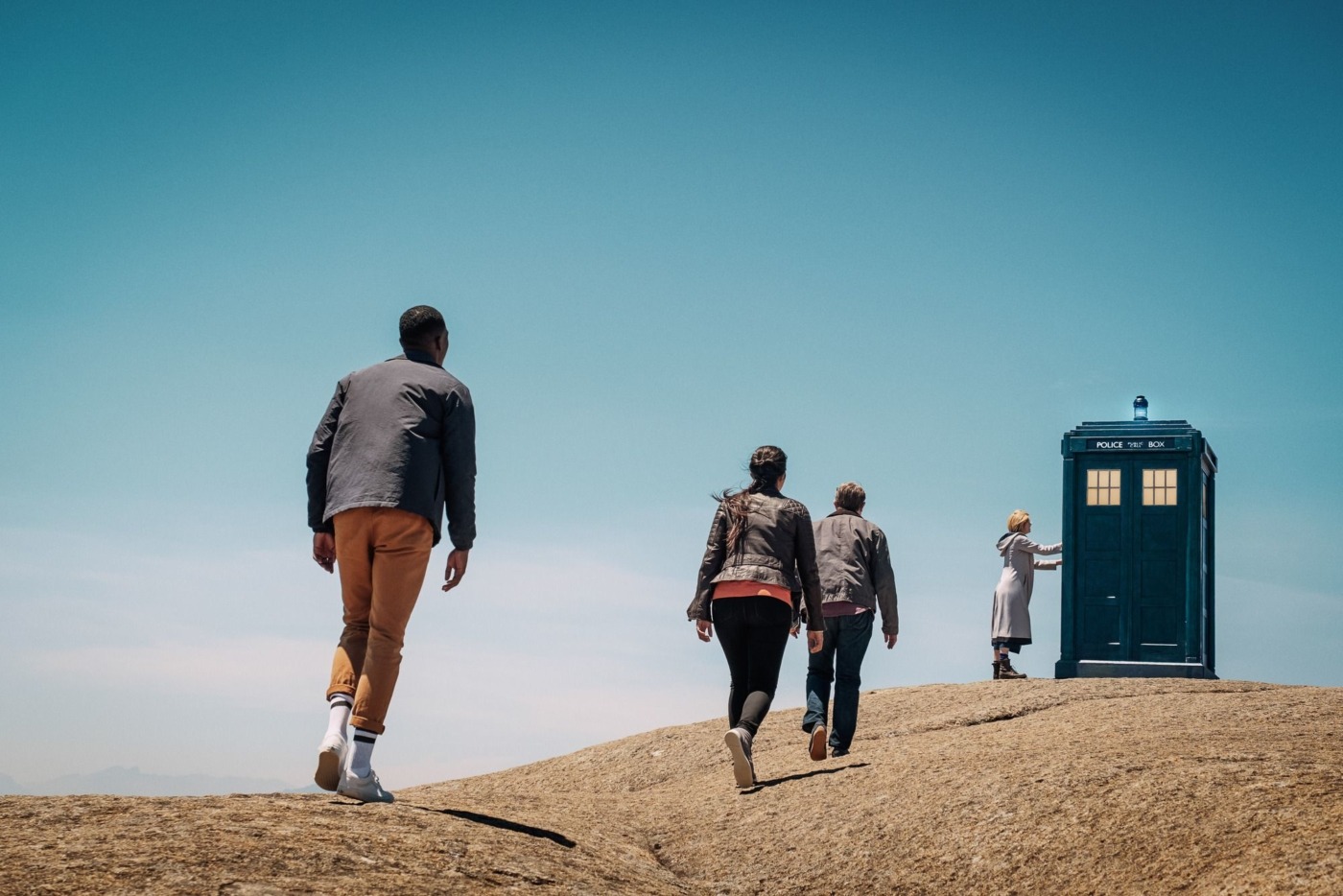Doctor Who – The Ghost Monument
After last week’s slow-burning introduction to Jodie Whittaker’s Thirteenth Doctor and her ‘new best friends’, the second episode picks up the pace, but only a little.
The intention seems clear in this new soft-rebooted series: gently settle new viewers into a new Doctor, a completely new cast, and a rather different approach. That showrunner Chris Chibnall penned this episode as well as the last is quite telling, with ‘The Ghost Monument’ continuing the entry-level Who-ness of ‘The Woman who Fell To Earth’. Long-standing fans might be frustrated by the willingness of the Doctor and her companions to ponder and explain well-known concepts, but it’s obvious Chibnall desires a more accessible, less convoluted approach to Who than previous series’ have offered.
it’s obvious Chibnall desires a more accessible, less convoluted approach to Who
The episode carries on where the previous left off, and wastes little time in resolving one crisis and beginning the next story. We encounter three more extremely human-like aliens, with rather more outlandish names than Tim Shaw, but a great deal fewer face-teeth. It quickly emerges that Angstrom (Susan Lynch) and Epzo (Shaun Dooley) are engaged in a sort of intergalactic Dakar Rally run by Ilin (a welcome turn from the underused Art Malik), whose final round occurs on the deserted Desolation, with the Doctor, Ryan, Graham, and Yas unwilling stowaways. Dooley and Lynch are engaging guest stars, even if their characters are somewhat formulaic. Angstrom is a member of a persecuted alien race seeking financial security for her family, while Epzo is a stereotypical loner, who appears to have taken the Simon and Garfunkel track ‘I Am a Rock’ as a lifestyle manifesto. Their friendly rivalry is entertaining nonetheless, and their clearly-established motivations allow a quick rapport with the main cast. The Doctor clashes with Epzo over his selfishness, showing our first dose of Doctoral anger (somewhat less terrifying compared to Tennant and Smith, with something of Capaldi’s dismissive sarcasm), while Angstrom bonds with recently-widowed Graham, having lost her own wife to Tim Shaw’s Stenza race.
it’s sort of nice to have a Doctor who’s unequivocally doing what’s best given the situation, rather than having at least five minutes of screentime per week looking enigmatic
Without going into too many plot details, it was intriguing to see the Stenza mentioned again- we know there are no two-parters in this series, but the existence of some kind of overarching villain is classic Doctor Who, and hopefully a source of comfort to those who feared a dumbed-down, monster-of-the-week series (myself included).
The episode plays out slowly, with a few climactic action scenes interrupting long periods of exploration and exposition. It’s been quite nice to slowly get to know the new characters, though Yas remains underdeveloped compared to Graham and his unwilling step-grandson Ryan, who appear to be less antagonistic towards each other than the first episode suggested. This Doctor wears her heart on her sleeve more than her often closed-off predecessors, actively airing her doubt and despair over endangering friends in a hostile alien environment, and in one late scene relies on the human companions to restore her self-assuredness. However, Whittaker’s enthusiasm and general air of being a good egg permeates her performance- it’s sort of nice to have a Doctor who’s unequivocally doing what’s best given the situation, rather than having at least five minutes of screentime per week looking enigmatic.
the camerawork is generous in terms of shot length, feeling far less frenetic than previous series
Meanwhile, the new title sequence appears for the first time, and is a stripped down, retro interpretation both in visual and musical terms- the turn towards minimalist, electronic instrumentation is a welcome change. Gone are the poorly-timed and overwrought credits that ended Capaldi’s tenure, in is a moody, understated introduction. Meanwhile, the cinematic nature of this series continues to impress- the planet Desolation feels as huge and intimidating as we’re told it is, and the camerawork is generous in terms of shot length, feeling far less frenetic than previous series.
With a visit to 1950s Alabama in store for next time, it will be intriguing to see how things develop now we’re fully in the time-travelling groove, as well as how our first historical story plays out- especially in such a momentous period of time. But ‘The Ghost Monument’ continues the encouraging start to this new era of Doctor Who, and once again, I can’t wait for next week.
Next review: Rosa
Previous review: The Woman who Fell to Earth

Comments
Comments are closed here.